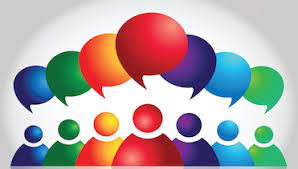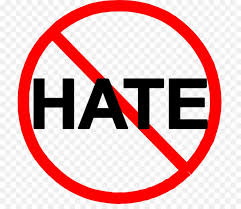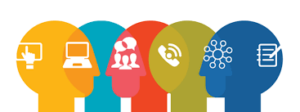“Costco is looking like the big winner after Target’s DEI rollback.”¹
“We make our decisions at Princeton based on our values and our principles.”²
“More Than 500 Law Firms Sign Onto Perkins Coie Amicus”³
“New York Public Schools Uphold DEI Policies Despite Federal Threats”4
These headlines provide evidence that standing up for diversity, equity, inclusion, and access works. That standing up for justice—especially against bullies—works, and that standing together works.
Evidence
I am an expert in diversity, equity, inclusion and access. I have been developing and facilitating workshops on these subjects for more than 30 years with the intent of helping people to understand that our perceptions and biases have a strong impact on our experiences. It has been imperative to use evidence to defend the work that I do throughout my career.
 There is abundant data showing that employees who work in organizations that effectively and strategically incorporate diversity, equity, inclusion and access into their policies, protocols, and practices, are much happier than those who work in organizations where these concepts are not valued.5 More people apply for jobs at these organizations—more highly qualified people. Turnover is diminished, law suits are less common, and engagement and productivity are higher.6
There is abundant data showing that employees who work in organizations that effectively and strategically incorporate diversity, equity, inclusion and access into their policies, protocols, and practices, are much happier than those who work in organizations where these concepts are not valued.5 More people apply for jobs at these organizations—more highly qualified people. Turnover is diminished, law suits are less common, and engagement and productivity are higher.6
So, why are people saying that DEIA is bad and nobody likes it? Some people are saying that. There has been a steady stream of mis and disinformation about what DEIA is and what its outcomes are. This disinformation is repeated again and again in corporate media without validation. It is possible for those in power to get other people to agree with disinformation—think of “The Emperor’s New Clothes.”7
I have had the extraordinary opportunity to observe many dozens of people experience a transformation from believing that DEIA is useless, even—damaging, to embracing it. I attribute that to my commitment to creating a space where all are welcomed with empathy and respect. Of the more than 10,000 people who have participated in my workshops, less than 5% have expressed that their experience was negative.8 Whether in the private, public, academic or nonprofit sectors, this data is consistent.
Share the Good News!
 I recommend showing and telling. Meaning, we need to share the ample evidence that being around diverse human beings is healthy for us as individuals, organizations, and communities; that being inclusive: collaborating with others in an interdependent way is incredibly efficient, effective, and makes us happier; that having equity means that we all have a right to the same protections and; that having accessibility does not just benefit those who have been historically excluded based on having a disability, but provides all of us the opportunity to collaborate with more people.
I recommend showing and telling. Meaning, we need to share the ample evidence that being around diverse human beings is healthy for us as individuals, organizations, and communities; that being inclusive: collaborating with others in an interdependent way is incredibly efficient, effective, and makes us happier; that having equity means that we all have a right to the same protections and; that having accessibility does not just benefit those who have been historically excluded based on having a disability, but provides all of us the opportunity to collaborate with more people.
Diversity, equity, inclusion, and access by any other name, is still what it is: Good for people, organizations, communities, and nations. I am encouraging all organizations that have benefited through their diversity, equitability, inclusivity, and accessibility to show and tell everyone! Use a bold homepage statement that includes data showing how great things are and share it on social media, via press releases and in employee town halls. Join Costco and other organizations that have increased their market share specifically because of their commitment to being diverse, equitable, inclusive, and accessible. Stand behind your principles like Princeton University and other academic institutions where applications for admission are going up instead of down. Defend your rights like Perkins Coie and other law firms and members of the legal community and increase your potential client share. The more organizations amplify the positive impact of DEIA on their missions, the clearer it will be that those who are abandoning these concepts are in the minority and never actually embraced them in the first place.
Power in Numbers
Individuals can be part of the solution by supporting those organizations that are standing up in several ways. Attorneys who believe in justice and the rule of law can join the firms that align with those values. Those who need legal guidance can seek out the firms who have signed the amicus brief. Professors and students can become part of academic institutions that are committed to freedom of speech and uncensored access to information and knowledge. Consumers can vote with their wallets by shopping at places that reflect their diversity.

There are many adages about hanging together, standing united, and having power in numbers. It is a concept that has not been this important since the Declaration of Independence was signed 249 years ago. A group of 56 delegates from all 13 American Colonies signed the Declaration citing evidence of disenfranchisement, violations of the rule of law, disintegration of the balance of powers, lack of due process, and other offenses. Signing that document was an act of Treason against the British Crown which carried a death penalty and a loss of all property which would leave the signers’ dependents destitute if they failed. The defenders of democracy prevailed and we have been able to enjoy the benefits of their sacrifice until now. Evidence and numbers work when used by people who are passionate about justice, equity, and the truth. Let’s use them again to defend our rights and each other.
Onward!
~ Wendy
April 14, 2025
Wendy Amengual Wark
Founder
Inclusion Strategy Solutions LLC
Wendy@InclusionStrategy.com
Inclusion Strategy Solutions
5 Page, Scott. The Difference: How the Power of Diversity Creates Better Groups, Firms, Schools, and Societies. Princeton. Princeton University Press. 2007.
8 We use anonymous surveys to determine participants’ perceptions of the experience and its potential impact on their job performance.




